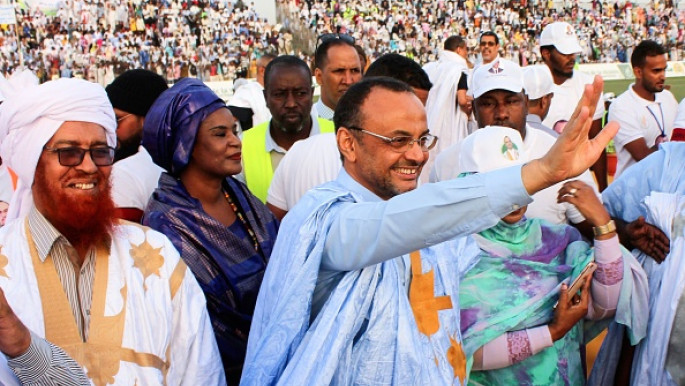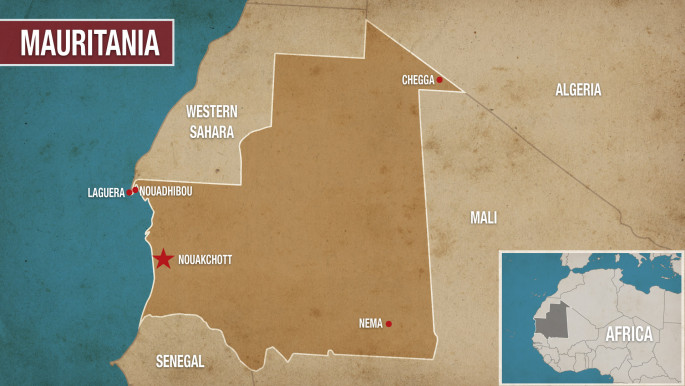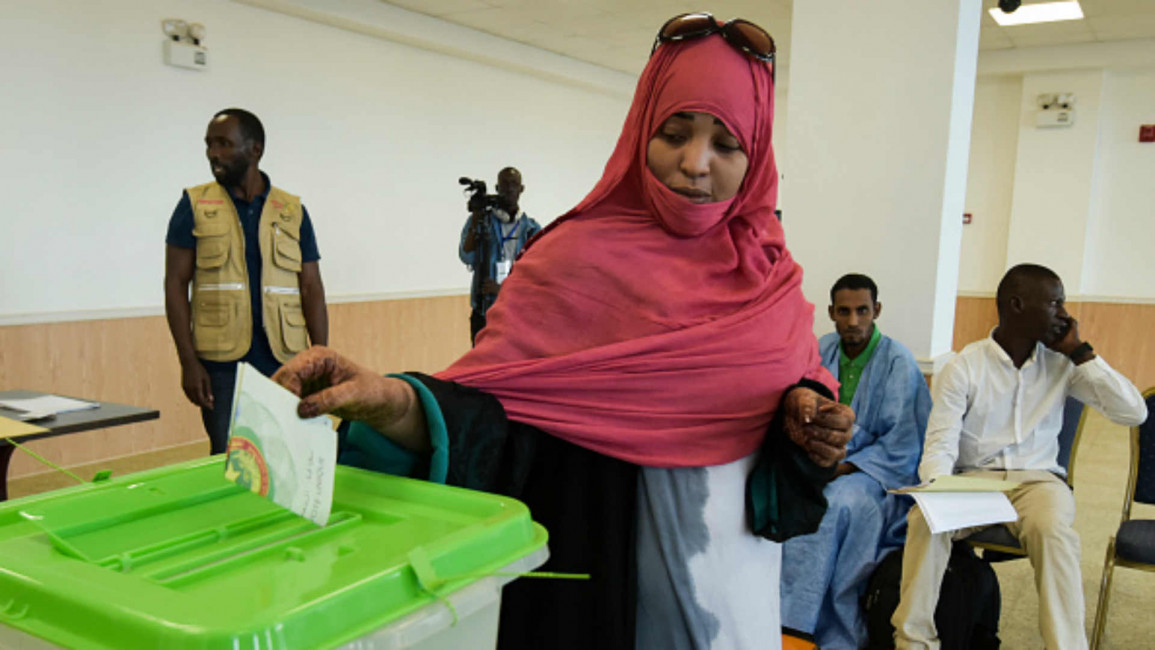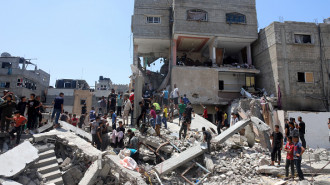Mauritania votes in first election since independence
Voters in the West African state of Mauritania went to the polls on Saturday after a campaign dominated by the country's economy and appeals to preserve its hard-won stability.
The ballot is the first in the nation's coup-strewn history - five coups since independence from France in 1960 - that looks set to see an elected president complete his mandate and hand over to an elected successor.
Some 1.5 million people are entitled to vote. Polling stations opened at 0700 GMT and will close at 1900 GMT, with preliminary results expected at the start of next week.
At Nouakchott's Olympic stadium, where frontrunner Mohamed Ould Ghazouani, a 62-year-old former general, is scheduled to cast his ballot at midday, queues had already formed when polling opened.
One voter, Elalem Abdelbaqi, said he had come early to fulfil his civic duty.
 |
We want radical change, which is to say: equality, education and social justice. |  |
"The programme of the person I'm going to vote for promises everything that I'm looking for," he told AFP, without revealing the name of his preferred candidate.
Another, Abdellahi Ould Vettah, called for "peaceful change".
"We want radical change, which is to say: equality, education and social justice," he said.
Fatimatou Ahmed, said "renewal is very important for us women".
President Mohamed Ould Abdel Aziz, a general who came to power in a 2008 coup, is standing down after winning high marks from many Mauritanians for stabilising the country.
Elected in 2009 and again in 2014 in a vote boycotted by the main opposition parties, Abdel Aziz has reformed the army, clamped down on insurgents and pushed to develop remote regions of the vast Saharan state.
Frontrunner Ould Ghazouani is a one-time head of the domestic security service and chief of staff to Abdel Aziz from 2008 to last year.
Ghazouani campaigned on the themes of continuity, solidarity and security - "the country's security, first and foremost," he declared on Thursday at a final rally gathering 10,000 supporters, many of them young people.
Abdel Aziz has given full backing to his loyal lieutenant.
"There's only two choices - either going backwards, towards extremism, waste and instability, or your candidate, who will continue what has been achieved to build a stable and developed state," he declared at the rally.
 |
| Sidi Mohamed Ould Boubacar, twice prime minister and now presidential candidate, attends an election rally [AFP/Getty] |
Ghazouani's main challenger is Sidi Mohamed Ould Boubacar, 62, who was prime minister between 1992 and 1996 and at the helm of a transitional government between 2005-7.
He hopes to win enough support to secure a runoff vote on July 6.
Boubacar is backed by a coalition led by the main opposition movement, Islamist party Tewassoul, and by wealthy Franco-Mauritanian businessman Mohamed Ould Bouamatou, a longtime thorn in the side of the regime who lives in Europe.
Nearly 30 percent said they would vote for Ghazaouani and 23 percent for Boubacar in a poll of 1,300 people conducted in the capital Nouakchott by the Mauritanian Centre for Strategic Studies and Research (CMERS) last week.
The four other candidates are outliers in the race, according to the poll.
Known especially abroad for his media campaigning, anti-slavery activist Biram Ould Dah Ould Abeid, 55, was credited with 9.5 percent of voting intentions, followed by veteran opposition figure Mohamed Ould Moloud, 66, with 3.7 percent.
Journalist Baba Hamidou Kane and political newcomer Mohamed Lemine El-Mourteji El-Wavi, each garnered under three percent.
 |
Courting the vote
Candidates have been trekking around the conservative Muslim country - twice the size of France - with a population of just 4.5 million, to woo voters.
They have also courted the heads of tribes and clans in remote regions, who can mobilise whole communities behind a candidate.
The opposition has warned of vote fraud and accused the Independent National Electoral Commission (CENI) of bias.
The authorities rejected an opposition request for foreign observers.
Rights groups urged candidates to throw their weight behind a rollback of slavery, which persists in Mauritania, and curbing violence against women.
All the candidates promised improvements in the standard of living, though economic growth at 3.6 percent in 2018 is insufficient to meet the needs of a fast-growing population, according to the World Bank.
It has called on Mauritania to give more help to the private sector, where, it say to credit and corruption are major problems.
Follow us on Twitter: @The_NewArab



